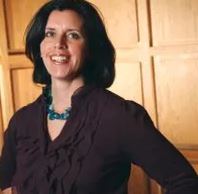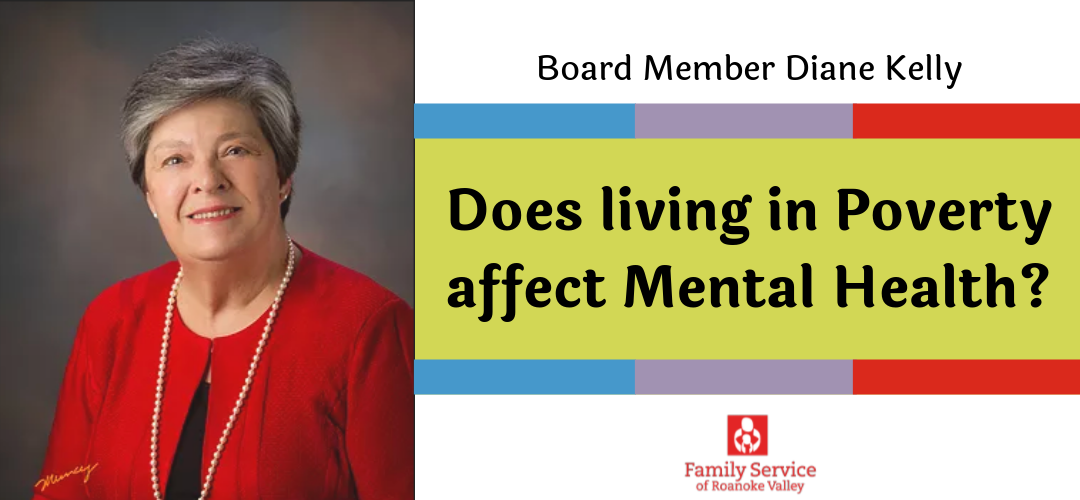Your Time to Give a Chance
Does living in Poverty affect Mental Health?
Be the One to…
Throughout September, Family Service and our fellow mental health organizations across the Roanoke Valley focus on Suicide Prevention and Awareness.
Part of the reason Suicide Prevention Awareness Month is in September is because incidents ofsuicide actually increase in the fall and also in the spring–as seasons change and life changes pace from the leisure of summer or the dormancy of winter.
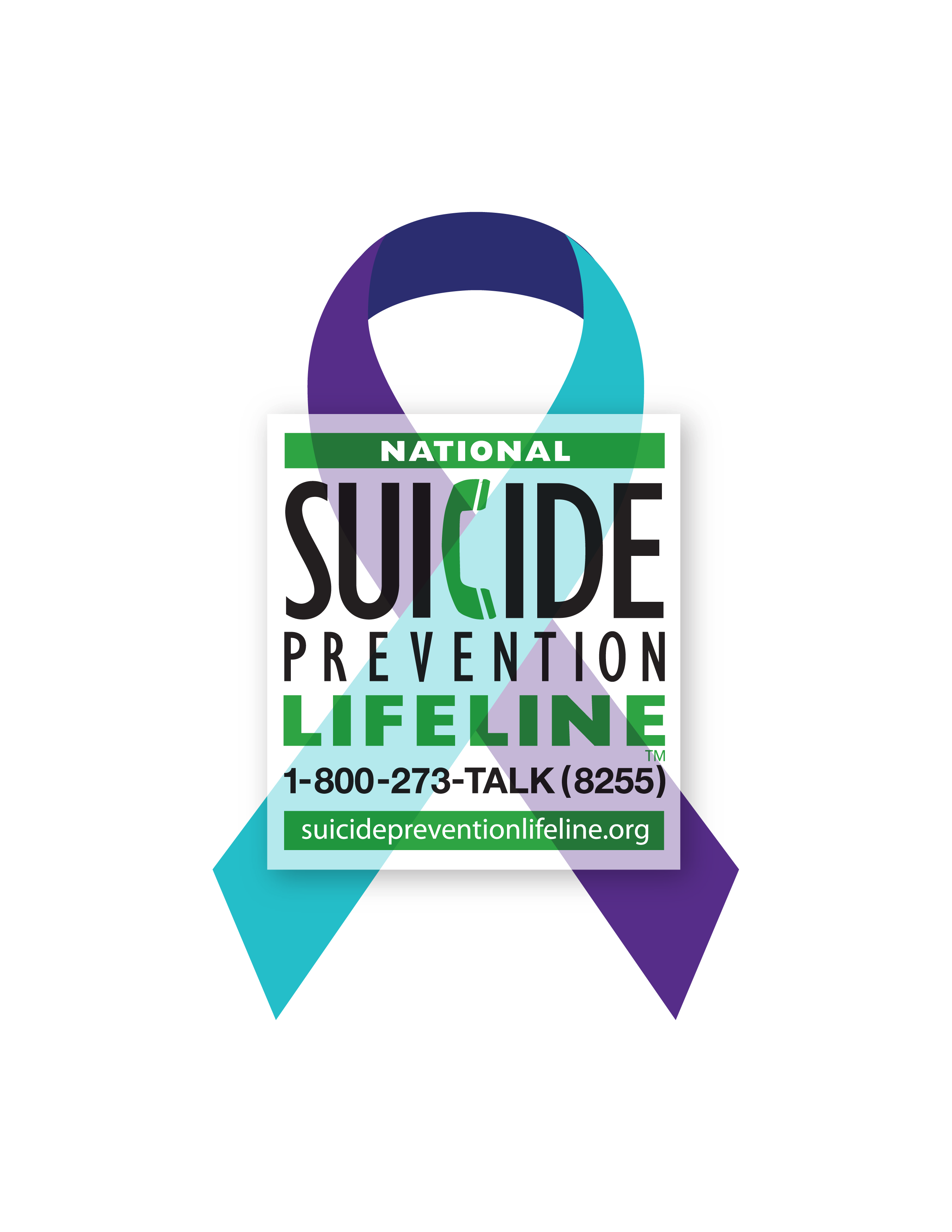
"Suicide rates spike in the spring and to a lesser extent in the fall, according to the Centers for Disease Control and Prevention, not around the holidays as everyone suspects. And in fact, suicides in general have increased 24% between 1999 and 2014, according to a CDC report," according to the CNN article.
As I shared on this blog last week, my oldest brother died by suicide in the spring. I remember it feeling strange at the time for a number of reasons.
The actual day of his death was one of those beautiful spring days, the breezy, gentle type of day you long for all winter long. Similar to today, the sky was bright blue and the clouds made you want to jump into them like a Care Bear.
In spring, life reemerges. In fall, it reinvests.
As leaves fall to create the bed of nutrition needed to sustain life through the winter, and creatures prepare their cold weather stashes of food and manes of warmth–this reinvestment is obvious all around us. Life sustains itself by believing in its own self-importance and committing to self-sufficiency.
That may not be as true for someone affected by major depression, bipolar, suicidal ideation, self-harm, and other mental health concerns that deplete an individual’s ability to invest in their own self-preservation.
Many may think of wintertime as the time people struggle with depression and loneliness, and that is certainly true. As in the case ofSeasonal Affective Disorder(SAD), changes in light and season affect mood.
So do changes in the world around you, which inherently cause changes within you–emotionally and physically.
That is why we need you. To see these sometimes subtle changes in a friend or loved one and to act.
Now is the time to pay attention. Not only because it’s Suicide Prevention Awareness Month. Because it is the time, it is always the time.
It is time to be the one to reach out and ask a friend the tough question: "I’ve noticed you’ve been staying to yourself a lot. Are you thinking of hurting yourself?"
Now is the time to talk to a professional about how losing a friend to suicide continues to impact you.
It’s always the time to be grateful for each day and careful with each interaction with others.
Be the one to make this a season–not of loss and despair, but of belief in oneself and in what comes next.
Take part in the local ‘s plan to raise awareness, support and resources throughout this month. . Be on the lookout for our social media posts all month long to learn more of what you can do.
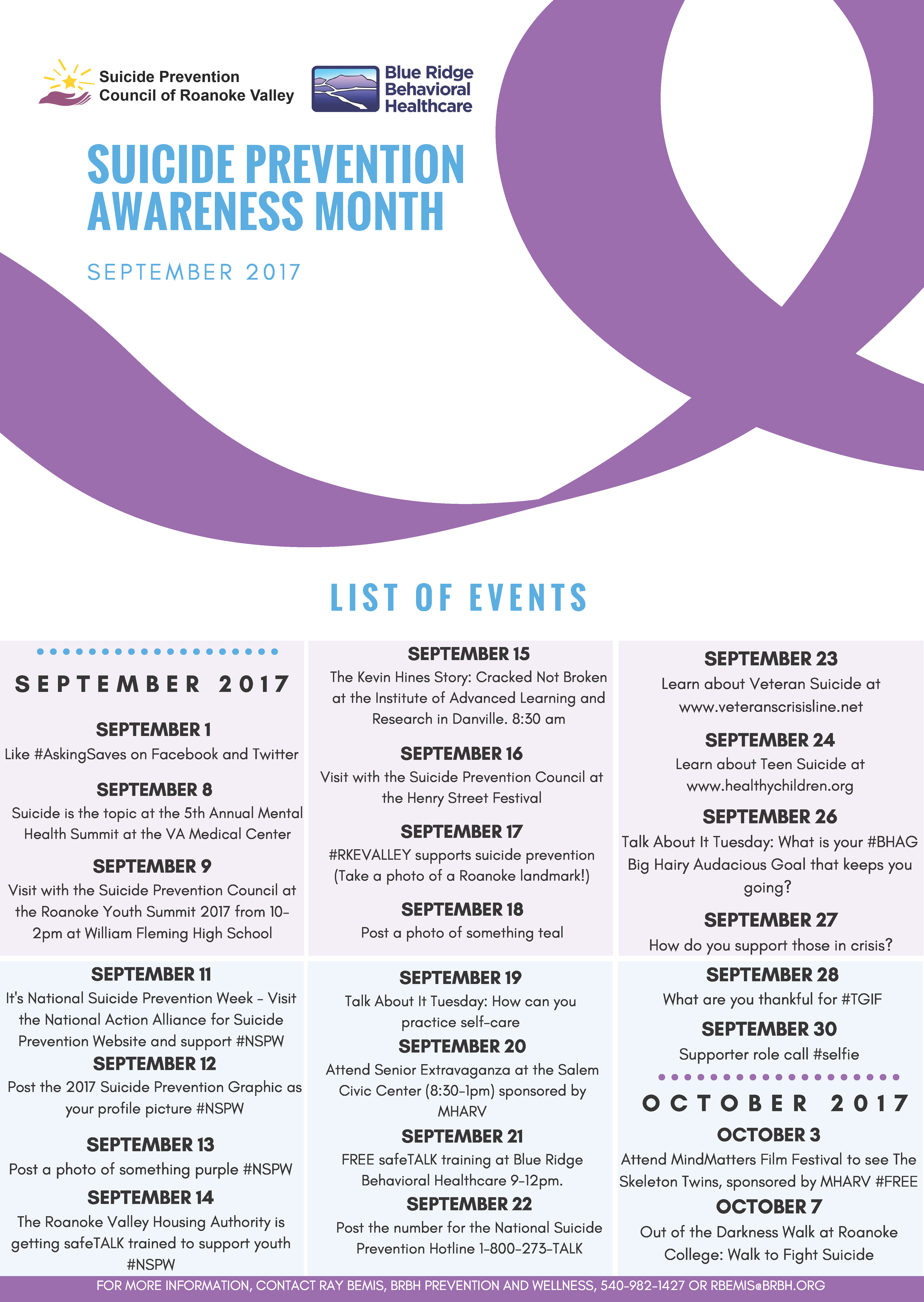
Table Discussions and Speaking of Suicide
Sitting at our family’s fourth generation dining room table, my brother and I talked.
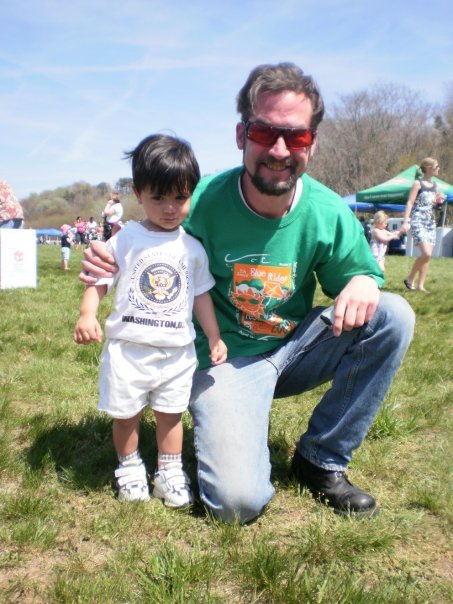
More like I talked. I thought he listened.
My grandmother gave me the table for my first real house, the one I shared with my first husband. My marriage ended and I moved home to live in my parents’ basement. So when my brother and I moved in together, it was a step to independence for both of us and the table came along too. We shared dinners at that dining room table—at holidays as kids and 30 years later as roommates. We lived together for about six months.
In summer 2011, he started drinking again.
Months before this conversation at the table where we had with a giant bowl of popcorn between us, my family and I had asked him to move out of the house my son and I were sharing with him. I told him I couldn’t live with him while he was drinking. Honestly, even while sober, living with him sucked the air out of the house and drained me.
I recommended he get a hobby. Suggested he could keep an old motorcycle to tinker on in my backyard. He loved engines and figuring things out and getting greasy. More than anything he loved helping others. Suggestion after suggestion, I never stopped and opened space for him to tell me how he felt and why.
I fought my urge to send him job offerings, invite him to stay for a night, cook him a meal, tell him I could make it better. Not that I never did those things, but I started to realize it was hurting me and not helping him. I didn’t want to lose myself in him, in his problems.
And, I didn’t.
I lost him.
Another thing I didn’t do was look into the best way to talk to someone with depression and suicidal thoughts. Now, over five years after his death and having spent time in the field of mental health through my work at Family Service, I have a better understanding of his life-long depression. Of how differently the world looked to him than it does to me. Of how impossible it was for him to look at the bright side. And, of how what he needed more than anything was for someone to stop offering advice and just listen, just be with him.
At the time of our dining room conversation, he had attempted suicide once—when a friend found him and rushed him to the hospital where he lay in a serotonin induced coma for three days. He overdosed on his own prescription depression medication.
About six months after that, he checked himself into the hospital because he was thinking about suicide again. That was two months before he ultimately took his own life in March 2012.
I thought I could relate to my brother’s situation. Apart from picking up the pieces for him, I thought the least I could do was empathize and share what worked for me.
My failed marriage brought a lot of pain and loss, and landed me in bankruptcy with a foreclosed home. I remember the fear of the creditors’ calls. I remember hating the mailbox and avoiding the look in others’ eyes. I remember blaming myself. I thought by sharing these things, I could give him hope. I wanted to give him my hope. He never found it.
He found more misery, more pain than I can imagine. He feared more than creditors and the impressions of others. He feared failure. He feared himself.
I used to say he had to find a way to be happy with himself and to find something to wake up for everyday. That must have scared him more than anything.
Being empathetic is on the best practices list of how to talk to someone who might consider suicide. So is saying something like “"When you want to give up, tell yourself you will hold off for just one more day, hour, minute—whatever you can manage."
Offering advice is a surefire way to shut down communication and entangle your own sense of values and worth in another’s struggle.
In recognition of Suicide Awareness Month, I want to share my experience trying to communicate with my brother. I’m hoping someone can find direction for a conversation they need to have with a friend or loved one.
The bottom line for me, in retrospect, is first and foremost don’t stay silent. Start the conversation and make yourself available. Best case scenario, if the person starts talking, then that’s the time to go quiet and listen with no judgement.
According to Metanoia.org, when talking to a suicidal person
Do:
Be yourself. Let the person know you care, that he/she is not alone. The right words are often unimportant. If you are concerned, your voice and manner will show it.
Listen. Let the suicidal person unload despair, ventilate anger. No matter how negative the conversation seems, the fact that it exists is a positive sign.
Be empathetic, non-judgmental, patient, calm, accepting. Your friend or family member is doing the right thing by talking about his/her feelings.
Offer hope. Reassure the person that help is available and that the suicidal feelings are temporary. Let the person know that his or her life is important to you.
Take the person seriously. If the person says things like, “I’m so depressed, I can’t go on,” ask the question: “Are you having thoughts of suicide?” You are not putting ideas in their head, you are showing that you are concerned, that you take them seriously, and that it’s OK for them to share their pain with you.
But don’t:
Argue with the suicidal person. Avoid saying things like: "You have so much to live for," "Your suicide will hurt your family," or “Look on the bright side.”
Act shocked, lecture on the value of life, or say that suicide is wrong.
Promise confidentiality. Refuse to be sworn to secrecy. A life is at stake and you may need to speak to a mental health professional in order to keep the suicidal person safe. If you promise to keep your discussions secret, you may have to break your word.
Offer ways to fix their problems, or give advice, or make them feel like they have to justify their suicidal feelings. It is not about how bad the problem is, but how badly it’s hurting your friend or loved one.
Blame yourself. You can’t “fix” someone’s depression. Your loved one’s happiness or lack thereof, is not your responsibility.
On the last day of my brother’s life, I didn’t see him or speak to him.
Perhaps he thought he knew what I would say—be positive, David, things will get better if you just believe in you.
Perhaps he had read my body language and unspoken inferences too many times—you’re not welcome here, David, you have too many problems and you’re bringing me down.
Perhaps he just couldn’t look me in the face because he knew how much I loved him.
He used the key I never asked him to return, and picked up the mail I never asked him to stop having delivered. He took his life that day, and though I know there is nothing I could do or say to change his actions, I am glad that there were boundaries I didn’t set, that there were places he could come into my life. I kept myself in, without completely shutting him out.
So, I will continue to remember him sitting at that table—the eccentric teenager in a chilly West Virginia dining room over butter rolls and honey ham, or the grave man years later sharing popcorn and misery.
A sober girl in a brewery town

When I moved back to Roanoke after 12 years, the Blue Ridge Mountains moved right back into my heart. It was like we’d never been apart.
There is little I love more than my town. Just like the other loves of my life—my three stinky boys (a husband and two sons), the four beating and two still hearts of my siblings, a strong cup of coffee, and a sweaty run—Roanoke isn’t perfect and proves its imperfections every day.
I love it still. My personal, professional, social and recreational life wraps around my interest in making this town as good as possible by giving it my best.
The years I spent away were also years spent away from my own best self. Coming back to Roanoke was the first step in a slow journey of getting back to me. To the me who runs the trails in this town. Who rubs elbows with people passionate and driven enough to make a difference in this world. Who believes in the shared heartbeat of humanity.
Part of that journey included giving up alcohol for good.
So, when the biggest news out of Roanoke in years was that a brewery from Oregon chose my love as its new home—I felt a little left out.
How could I celebrate the news with my friends and neighbors? It’s a place I will likely never visit. Gear I will never wear. Beer I will never taste.
And Deschutes isn’t the only brewery to come to Roanoke or beer-related news to ripple through our community. 2016 was pretty much the year of the beer.
If you don’t know how big of a deal this is in Roanoke, then I’ll give you an example.
Tomorrow, July 15, is the second annual Deschutes Street Pub in Roanoke.
Today, in my regular Friday yoga/Pilates class, the instructor started class by asking who was going to the Street Pub. Hmmmmm…
The furor of Deschutes choosing Roanoke for its East Coast home reached absolutely astonishing heights.

For the days following the announcement in March 2016, messages of Deschutes coming to Roanoke were literally everywhere.
Runners, bikers, non-profit friends, parents, grandparents—everyone it seemed—was over the moon psyched to celebrate alcohol and what it means for our economy, our community, our sense of self.
And I was over here, like, nope.
Being five years sober and realizing how much more real and awake life feels, I have a difficult time encouraging an entire town to get intoxicated on the idea that our future is better for adding more beer.
But, I’m not a total downer.
I’ll be there at the Street Pub representing Family Service with our partner organization United Way of Roanoke Valley. Last year, I shared booth space with SARA (Sexual Assault Response Awareness).
The saving grace of being a sober girl in a brewery town is that at least the most popular brewery to move to Roanoke believes in giving back to its community.
Family Service doesn’t receive funds from the Street Pub, but Deschutes gave $81,000 back to Roanoke after the 2016 Street Pub.

This year our partner organization Bradley Free Clinic, which operates The Hope Initiative to intervene on behalf of addicts to help them turn over their drugs and get into treatment, is one of the organizations to benefit from the event.
I continue to be excited about Deschutes in Roanoke because I hope it encourages other companies to realize the importance of giving back to our community. I hope it attracts more companies that prioritize people and their lives and needs.
Creating jobs and bringing tourists and creating a fun community will never relieve the need for helpers. By investing in our home, by giving to those who struggle, by believing everyone deserves a chance to heal—we make hope a basic human right.
Hope, not hops.
Or, at least Hops and Hope.
Help others find happy, healthy lives!

Feness, in 5th grade at the time, faced a stressful and slightly lonely life. She didn’t feel good about herself and was unsure what kind of person she would become. When Feness found Family Service of Roanoke Valley’s Teen Outreach Program® (TOP) at the West End Center for Youth, she found people who cared.
Read more of Feness’ story here
.TOP® is just one way Family Service brings mental health care and support into the community, where people
live, learn and play
. People can start working toward their happiest, healthiest lives through therapy, treatment and support at over 30 different partner sites including schools, after school centers, adult care facilities, partner service providers, neighborhoods, community centers and more!
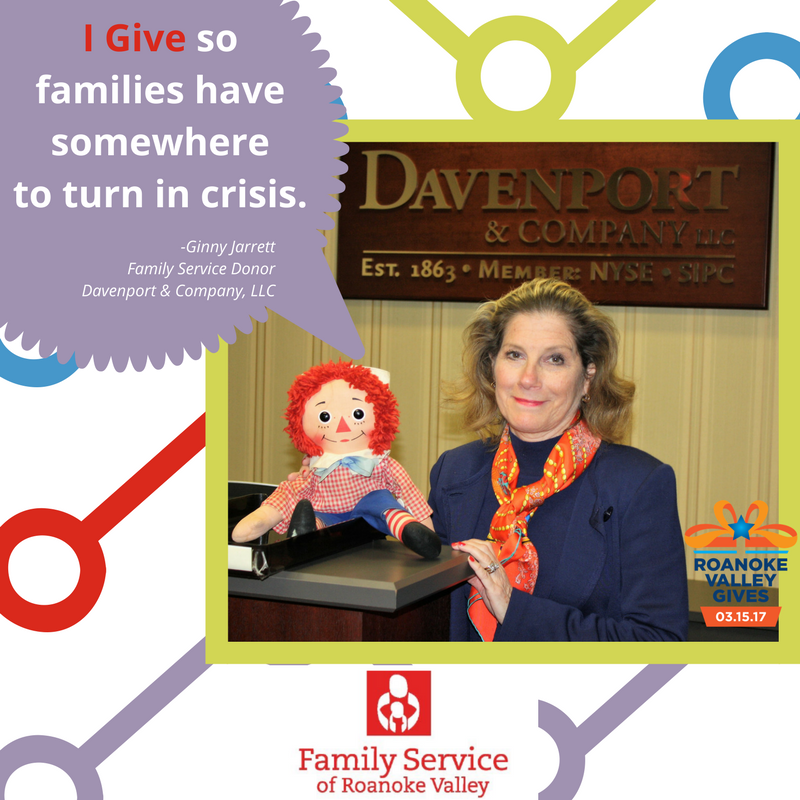
That’s why our friend Raggedy Andy is visiting our partners in the coming weeks–to highlight how our neighbors are able to get the help they need when and where they need it.
You can help make this possible by supporting Family Service on Roanoke Valley Gives March 15. We have a goal to raise $5,000. Click here to donate during the Power Hour of Noon-1 p.m., or anytime March 15!
Like our neighbors, who find help in arm’s reach when they need it, Raggedy Andy is out and about in the community. You never have to look far to find a smiling face and helping hand.
You never know where Raggedy Andy will show up next. You can be sure, wherever you see him is another place lives are being changed.
All thanks to the generous support of people like you. People who understand the importance of giving all families a place to turn in crisis, and all children hope for a happier, healthier future!
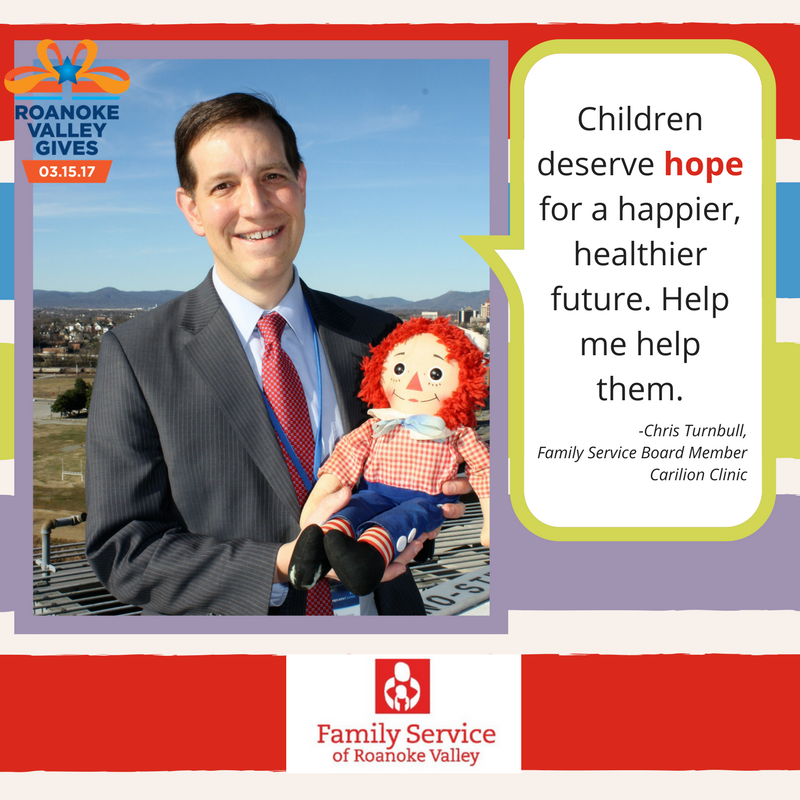
Counseling, crisis and support services available regardless of language barriers
Family Service of Roanoke Valley and community partners recognize the specific challenges faced by refugees and other Limited English Proficiency persons in our community. To better serve this growing population in the Roanoke Valley, they today announced a collaborative project to address the need for qualified, appropriate and culturally sensitive interpreter services for victims of crime—Health and Wellness Interpreters of the Roanoke Valley.
“We are making a commitment to not let any victim of crime feel isolated or hopeless because they are not able to access services in their primary language,” Family Service President and CEO Sharon Thacker said.

The program will serve any victim of crime—physical assault or bullying, financial fraud, child abuse, domestic violence, sexual assault, robbery, or any other type of crime—for whom language is a limitation.
Four primary partners include Family Service of Roanoke Valley,Salvation Army’s Turning Point, TAP Domestic Violence Services and Sexual Assault Response and Awareness (SARA, Inc)
. Health and Wellness Interpreters of the Roanoke Valley will focus on giving people with limited English proficiency access to counseling, support services, advocacy, crisis intervention and more.
Refugees, immigrants and other Limited English Proficiency/deaf persons need affordable and accessible interpreter services, specifically in-person interpreter services by qualified and certified interpreters trained in mental health. Layering interpreter services into existing direct services allows victims of crime to get the help they need without having to deal with the added challenge of not being able to speak the language.
Funding for the program is made available through the Department of Criminal Justice Services Victims of Crime Act. The Roanoke Valley will receive over $280,000 in the next 12 months, with additional funding available in coming years.
City of Roanoke Vice Mayor Anita Price joined Thacker and others to make an announcement about the new program on Tuesday, November 22 during National Family Week.
See the media coverage of the announcement on:
“The City of Roanoke is proud to partner with our local non-profits to give people who live and work in this beautiful Valley the tools they need to succeed,” Price said. “Roanoke is a refugee resettlement community with a diverse population, and there are growing numbers of people whose primary language is not English. These neighbors will be better able to live, work and play in our Valley if they can deal with the trauma and hopelessness associated with extremely difficult life circumstances.”
As a refugee resettlement community, the Roanoke Valley is a melting pot of various cultures and nationalities, representing over 100 spoken languages. This diversity is an incredible asset to our community, and understandably, also represents challenges for health and human services providers responding to the needs of clients with Limited English Proficiency (LEP). Over 3,800 people were identified as not being proficient in English in the 2016 County Health Rankings. The current system relies on expensive language lines, and live interpreters provided by insurance companies which can’t be accessed in a timely fashion, and don’t adequately meet the needs of clients. These resources become virtually non-existent for those that are uninsured or lack behavioral healthcare coverage.
Health and Wellness Interpreters of the Roanoke Valley will make these services available to LEP/deaf victims of crime at no cost, and in the most appropriate and culturally sensitive manner possible.
The City of Roanoke is partnering to identify and refer victims of crime with language limitations to the new centralized resource. Many organizations have also lined up to help bring no-cost interpreter services to people who need it—the Mental Health Refugee Council, United Way of Roanoke Valley, Roanoke City Public Schools, Roanoke City Department of Social Services, Blue Ridge Literacy, Commonwealth’s Attorney Victim/Witness, Carilion Roanoke Memorial Hospital Emergency Department and Mental Health America.
Funds are included for each primary partner agency to provide interpreter services at no cost to the crime victim. There are also funds to give victims of crime access to interpreter services so they may get connected with other needed services not provided by the four primary partners.
Health and Wellness Interpreters of the Roanoke Valley will also conduct community outreach events and trauma-informed trainings. The purpose of these events will be to educate service providers, refugee and immigrant communities, limited English proficiency or deaf persons, and the greater community on how to identify and access services.
For more information, please call 540-563-5316 x3014
Play Therapy Institute: Learning by Healing
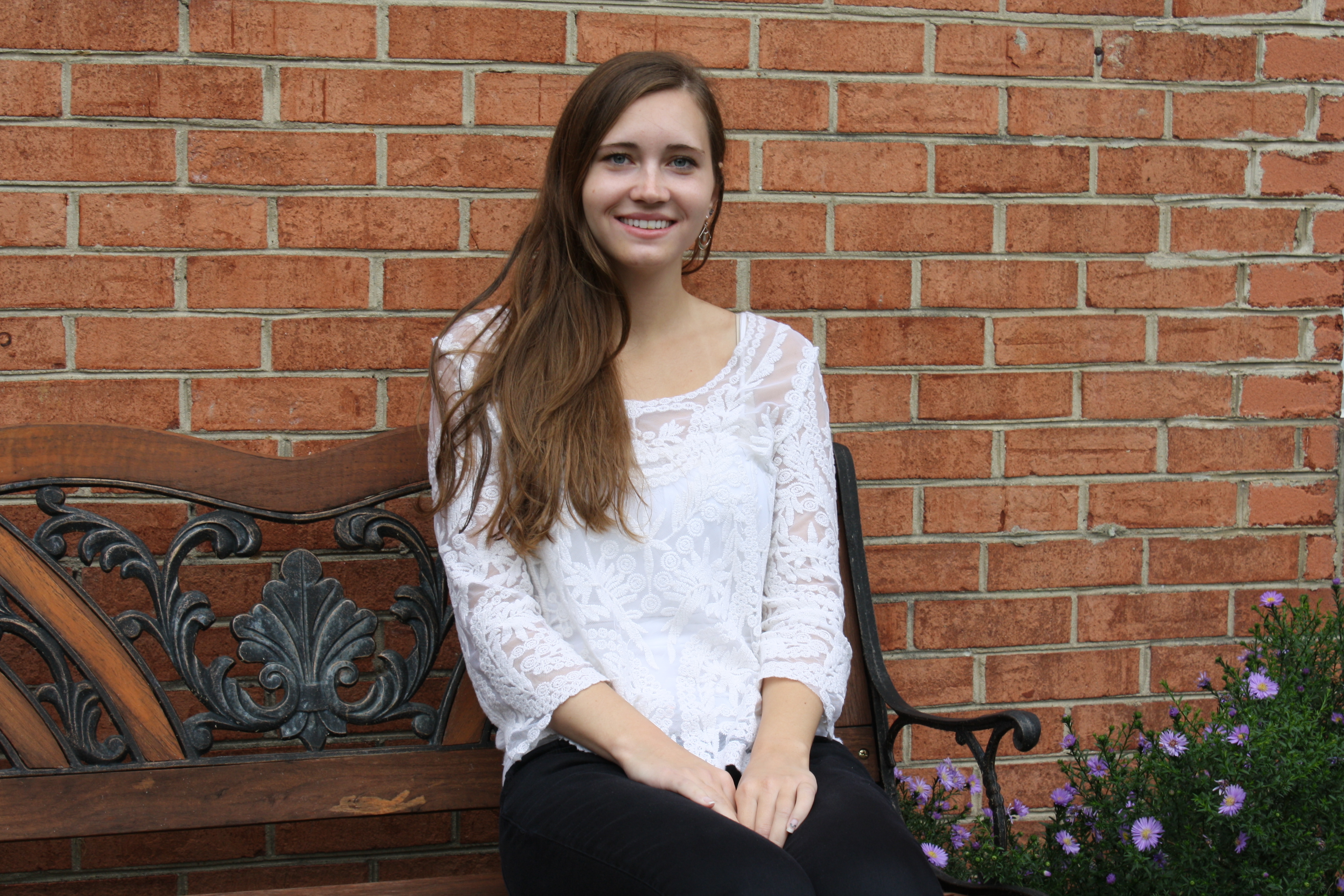
Getting to know Alex Matthews
Alex Matthews, a Play Therapy graduate intern at Family Service of Roanoke Valley, earned a Bachelor of Science in Psychology from Virginia Tech. She is now participating in the Play Therapy Institute at Family Service to complete the Masters of Counseling program at Virginia Tech. She joined Family Service in August 2016, and her supervisor is Jennifer Nolley.
Matthews has experience working as a research assistant for child study center for a professor known worldwide for his research in oppositional defiance disorder and phobias. She also worked as a preschool teacher and feels like there were kids who fell through the cracks.
"I have always been interested in psychology-related field. I was drawn to counseling because as a counselor we look at the whole person rather than seeing them as a diagnosis," she said.
The Counseling intern said she got to choose between a school placement or a community-based placement for her internship. She chose a community-based placement because she wanted the one-on-one therapeutic time with children and she really felt like she could make a difference.
She said she is pursuing social work because she thinks there is a great deal of impact she can have on families in need.
"The whole experience I am gaining at Family Service is very new, because it’s younger kids than I’ve worked with. I like the idea of Play Therapy. It’s very non-directive, and I like that aspect of it–just letting them be who they are in that space," she said.
The children who seek Play Therapy services at Family Service have often suffered the most extreme life circumstances–poverty, abuse, neglect, and violence in their home.
Matthews said she became interested in Play Therapy in Theories and Techniques class.
"I know kids can’t always verbally express themselves," she said.
Seeing how her supervisor Nolley and other therapists at Family Service work with the kids lets Matthews feels like Family Service is the right place for her to learn more in her field and make a difference for kids in our community.
A Closer Look at Play Therapy Institute
Play Therapy Counseling at Family Service is a robust program. Seven full-time and part-time counselors focus specifically on treating the youngest children in our community. With three rooms dedicated to Play Therapy, and a reputation for excellence, Family Service wanted to establish the Play Therapy Institute. The institute allows the agency to increase the counseling services available for traumatized children in our community, and address the waiting list for Play Therapy–which is consistently over 20 for children ages 2-12.
With the support of the Virginia Department of Social Services through the Victims of Crime Act funding, Family Service was able to see this dream come true. Matthews joins Family Service along with two other Masters level interns–Malvona Ross-Sohland Ashley Carr–to enhance the services available and reduce the number of children on the waiting list for Play Therapy,
Specifically for children who have suffered abuse or neglect,
Family Service is able to offer counseling free of charge.
Click for more information.
Play Therapy Institute: Learning by Healing
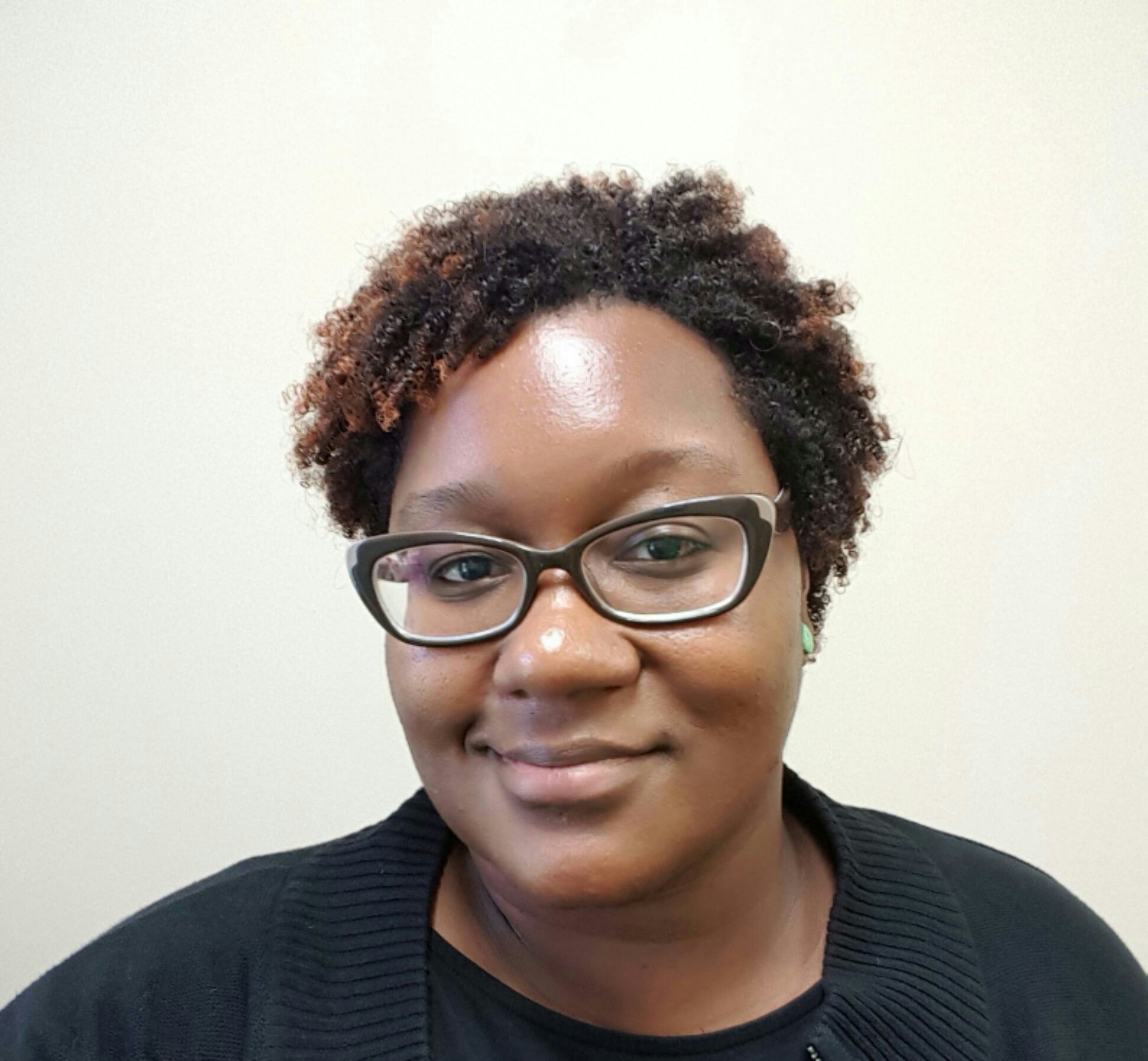
Getting to know Malvona Ross-Sohl
Malvona Ross-Sohl, a Play Therapy graduate intern at Family Service of Roanoke Valley, earned a Bachelor of Social Work from Radford University. She is now participating in the Play Therapy Institute at Family Service to complete the Masters in Social Work program at Virginia Commonwealth University. She joined Family Service in August 2016, and her supervisor is The Rev. Melissa Hays-Smith, LCSW, RPT-S.
Ross-Sohl grew up in a home where she witnessed domestic violence and tragically lost her mother at a young age. Now a wife and mother herself, Ross-Sohl has made a career of helping others and learning more about the cycle of domestic violence and how it impacts communities and families.
The Counseling intern has worked at TAP’s Sabrina’s Place and as a case manager at Blue Ridge Behavioral Health. She is currently working as Lead Case Manager for the TAP YALE (Young Adult Life Enhancement) program for youth 14-19 years old in addition to going to school.
She said she is pursuing social work because she thinks there is a great deal of impact she can have on families in need.
"The whole experience I am gaining at Family Service is very new, because it’s younger kids than I’ve worked with. I like the idea of Play Therapy. It’s very non-directive, and I like that aspect of it–just letting them be who they are in that space," she said.
The children who seek Play Therapy services at Family Service have often suffered the most extreme life circumstances–poverty, abuse, neglect, and violence in their home. Seeing how her supervisor Hays-Smith and other therapists at Family Service work with the kids lets Ross-Sohl know she’s made the right choice.
She said the ongoing therapeutic relationship developed through counseling provides an opportunity to intervene in a child’s life early and hopefully stop the cycle of abuse.
Ross-Sohl is grateful she was able to do that for herself and is hopeful her career in social work will allow her to help other kids escape from a lifetime of abuse and emotional wounds.
"I want to get a very diverse experience and I think I’m doing that," she said. "I also want to make the most impact that I can. I don’t want to just be comfortable. I want to make an impact on the people I work with."
A Closer Look at Play Therapy Institute
Play Therapy Counseling at Family Service is a robust program. Seven full-time and part-time counselors focus specifically on treating the youngest children in our community. With three rooms dedicated to Play Therapy, and a reputation for excellence, Family Service wanted to establish the Play Therapy Institute. The institute allows the agency to increase the counseling services available for traumatized children in our community, and address the waiting list for Play Therapy–which is consistently over 20 for children ages 2-12.
With the support of the Virginia Department of Social Services through the Victims of Crime Act funding, Family Service was able to see this dream come true. Ross-Sohl joins Family Service along with two other Masters level interns–Alex Matthews and Ashley Carr–to enhance the services available and reduce the number of children on the waiting list for Play Therapy,
Specifically for children who have suffered abuse or neglect,
Family Service is able to offer counseling free of charge.
Click for more information.

